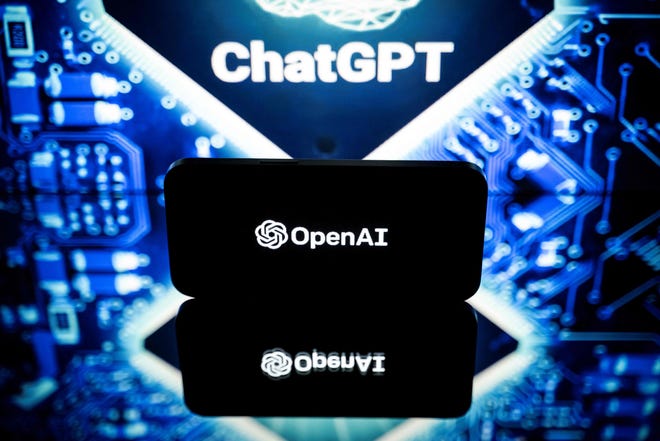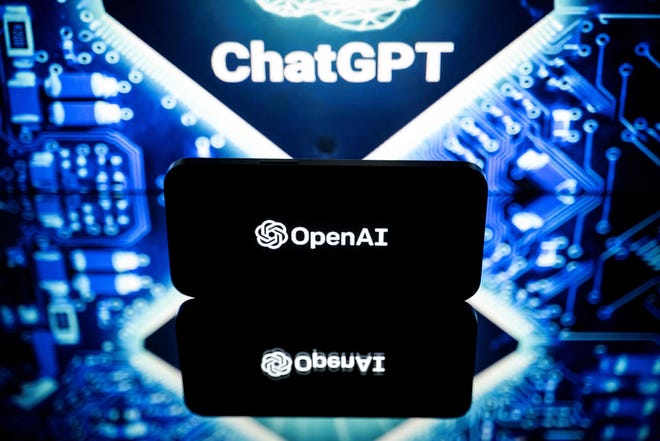[ad_1]
The rapid expansion of artificial intelligence has been much in the news recently, including the recent call by Elon Musk and more than 1,000 technology leaders and researchers for a pause on AI.
Some of us have warned about the danger of political bias in the use of AI systems, including programs like ChatGPT. That bias could even include false accusations, which happened to me recently.
I received a curious email from a fellow law professor about research that he ran on ChatGPT about sexual harassment by professors. The program promptly reported that I had been accused of sexual harassment in a 2018 Washington Post article after groping law students on a trip to Alaska.
AI response created false accusation and manufactured ‘facts’
It was not just a surprise to UCLA professor Eugene Volokh, who conducted the research. It was a surprise to me since I have never gone to Alaska with students, The Post never published such an article, and I have never been accused of sexual harassment or assault by anyone.
When first contacted, I found the accusation comical. After some reflection, however, it took on a more menacing meaning.
Opinions in your inbox: Get exclusive access to our columnists and the best of our columns
Over the years, I have come to expect death threats against myself and my family as well as a continuing effort to have me fired at George Washington University due to my conservative legal opinions. As part of that reality in our age of rage, there is a continual stream of false claims about my history or statements.
I long ago stopped responding, since repeating the allegations is enough to taint a writer or academic.

AI promises to expand such abuses exponentially. Most critics work off biased or partisan accounts rather than original sources. When they see any story that advances their narrative, they do not inquire further.
What is most striking is that this false accusation was not just generated by AI but ostensibly based on a Post article that never existed.
Volokh made this query of ChatGPT: “Whether sexual harassment by professors has been a problem at American law schools; please include at least five examples, together with quotes from relevant newspaper articles.”
The program responded with this as an example: 4. Georgetown University Law Center (2018) Prof. Jonathan Turley was accused of sexual harassment by a former student who claimed he made inappropriate comments during a class trip. Quote: “The complaint alleges that Turley made ‘sexually suggestive comments’ and ‘attempted to touch her in a sexual manner’ during a law school-sponsored trip to Alaska.” (Washington Post, March 21, 2018).”
There are a number of glaring indicators that the account is false. First, I have never taught at Georgetown University. Second, there is no such Washington Post article. Finally, and most important, I have never taken students on a trip of any kind in 35 years of teaching, never went to Alaska with any student, and I’ve never been been accused of sexual harassment or assault.
Should the US ban TikTok? Here’s why blocking it isn’t a good idea
More from Jonathan Turley:Will Trump get arrested? Between sketchy witnesses and the law, case comes up short.
In response to Volokh’s question, ChatGPT also appears to have manufactured baseless accusations against two other law professors.
Bias creates flaws in AI programs
So the question is why would an AI system make up a quote, cite a nonexistent article and reference a false claim? The answer could be because AI and AI algorithms are no less biased and flawed than the people who program them. Recent research has shown ChatGPT’s political bias, and while this incident might not be a reflection of such biases, it does show how AI systems can generate their own forms of disinformation with less direct accountability.
Despite such problems, some high-profile leaders have pushed for its expanded use. The most chilling involved Microsoft founder and billionaire Bill Gates, who called for the use of artificial intelligence to combat not just “digital misinformation” but “political polarization.”
AI-created misinformation:ChatGPT made up research claiming guns aren’t harmful to kids. How far will we let AI go?
Another view:John Oliver is wrong to worry about ChatGPT. AI can help us solve complex problems.
In an interview on a German program, “Handelsblatt Disrupt,” Gates called for unleashing AI to stop “various conspiracy theories” and to prevent certain views from being “magnified by digital channels.” He added that AI can combat “political polarization” by checking “confirmation bias.”
Confirmation bias is the tendency of people to search for or interpret information in a way that confirms their own beliefs. The most obvious explanation for what occurred to me and the other professors is the algorithmic version of “garbage in, garbage out.” However, this garbage could be replicated endlessly by AI into a virtual flood on the internet.
Volokh, at UCLA, is exploring one aspect of this danger in how to address AI-driven defamation.
Is Elon Musk a risk to US security? Pentagon’s reliance on him grows despite his behavior.
Is social media the new Marlboro Man?:Big Tobacco settlement holds lesson for Big Tech.
There is also a free speech concern over the use of AI systems. I recently testified about the “Twitter files” and growing evidence of the government’s comprehensive system of censorship to blacklist sites and citizens.
One of those government-funded efforts, called the Global Disinformation Index, blacklisted Volokh’s site, describing it as one of the 10 most dangerous disinformation sites. But that site, Reason, is a respected source of information for libertarian and conservative scholars to discuss legal cases and controversies.
Faced with objections to censorship efforts, some Democratic leaders have pushed for greater use of algorithmic systems to protect citizens from their own bad choices or to remove views deemed “disinformation.”
In 2021, Sen. Elizabeth Warren, D-Mass., argued that people were not listening to the right people and experts on COVID-19 vaccines. Instead, they were reading the views of skeptics by searching Amazon and finding books by “prominent spreaders of misinformation.” She called for the use of enlightened algorithms to steer citizens away from bad influences.
Some of these efforts even include accurate stories as disinformation, if they undermine government narratives.
The use of AI and algorithms can give censorship a false patina of science and objectivity. Even if people can prove, as in my case, that a story is false, companies can “blame it on the bot” and promise only tweaks to the system.
The technology creates a buffer between those who get to frame facts and those who get framed. The programs can even, as in my case, spread the very disinformation that they have been enlisted to combat.
Jonathan Turley, a member of USA TODAY’s Board of Contributors, is the Shapiro Professor of Public Interest Law at George Washington University. Follow him on Twitter @JonathanTurley
[ad_2]
Source link





